Molecular structure of one of the most important receptors in the immune system unraveled
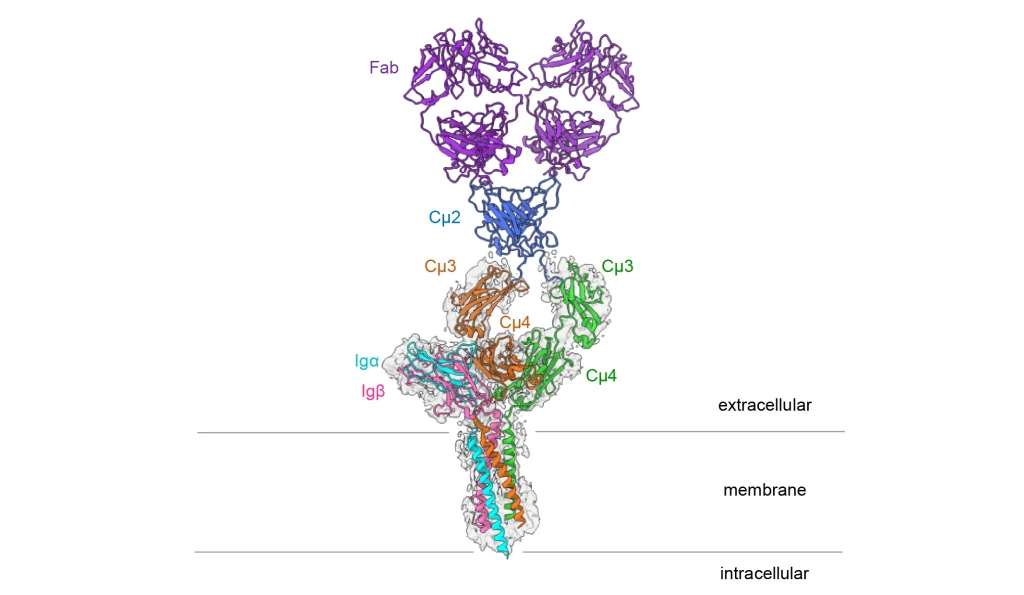
The surface of B cells is covered with antigen receptors with which they recognize invading pathogens such as bacteria and viruses. When a B cell receptor binds to an antigen, that is, to a foreign structure, the B cell is activated and triggers the production of antibodies. Antibodies are essential for our survival and protect us against severe diseases from infections with pathogens such as COVID-19. Vaccinations have a protective effect as they activate antigen receptors, thereby triggering an immune response. An international team of researchers from the Cluster of Excellence CIBSS of the University of Freiburg and Harvard Medical School, USA, has now published the exact molecular structure of an IgM-type B cell receptor. Their findings indicate that the receptor on the surface of the B cell interacts with further receptors, thus controlling its signal transduction. The study was published in the renowned journal Nature.
How can plants adapt to climate change?
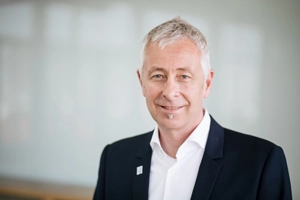
Cell biologist and associated BIOSS member Stefan Rensing explains how looking into the past can reveal the solution for the future.
“It is well worth studying the enormous processes of adaptation plants have undergone to take the leap from water to land more than 500 million years ago. Understanding these processes is a step towards helping plant life to cope with climate change and preserving biodiversity,” says Prof. Dr. Stefan Rensing, cell biologist and Vice-President for Research and Innovation at the University of Freiburg. Together with Dr. Mona Schreiber from the University of Marburg and Prof. Dr. Sven Gould from the University of Düsseldorf, he gives an overview of current research into how plants transitioned to land in the recently published paper “The greening ashore: How plants changed the climate before we did”.
BIOSS member Sonja-Verena Albers elected as member of the National Academy of Sciences – Leopoldina
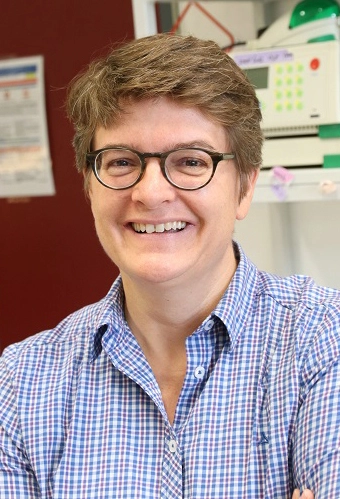
Sonja-Verena Albers is a professor for microbiology and Dean of the Faculty of Biology. She studies different aspects of cellular function and signalling and is a member of the steering board of BIOSS, and a member of the Cluster of Excellence CIBSS at the University of Freiburg.
Prof. Albers researches the molecular biology of archaea, a diverse group of single-celled organisms that is distinct from bacteria and eukaryotes. Albers’ work focuses on the assembly of the archaeal cell envelope, and on the regulatory and signaling networks that control it. This includes the assembly of large molecular appendages on the cell surface, such as the motility structures with which archaea navigate and sense their environment, but also smaller modifications to the cell surface, such as the addition of carbohydrate groups to molecules though a process called N-glycosylation. The unique properties of archaea require research techniques that are specific to these organisms, which is why Albers uses newly established genetic tools in combination with approaches from the fields of molecular microbiology, cell biology and biochemistry and biophysics.
Signalling Researcher Wilfried Weber Receives ERC Advanced Grant for Living Materials
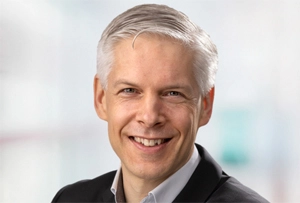
The engineer and biologist Prof. Dr. Wilfried Weber from the University of Freiburg’s Institute of Biology II has received an Advanced Grant from the European Research Council (ERC) for his research on materials made of living cells that maintain a self-regulating equilibrium. Weber will receive 2.5 million euros over five years to develop living materials with the capacity for so-called homeostasis. “In biology, researchers use this term to describe regulatory systems that keep things like blood pressure or energy balance in equilibrium,” explains Weber.
Visiting Scholar Prof. Dr. Tamara Kinzer-Ursem receives prestigious Fellowships
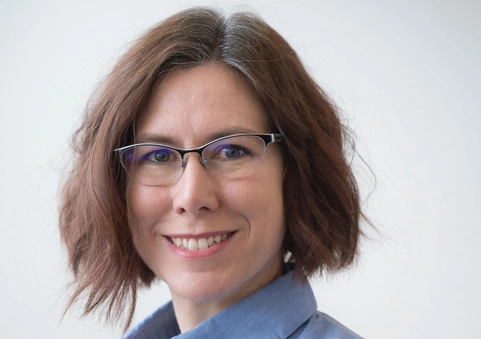
BIOSS visiting scholar, Prof. Dr. Tamara Kinzer-Ursem has received two prestigious international awards to initiate collaborative projects in phosphatase/kinase signaling. Working with BIOSS speaker and CIBSS member Prof. Maja Köhn, Prof. Kinzer-Ursem will use a combined computational-experimental framework to explore how Ca2+-dependent changes in kinase and phosphatase signaling can lead to molecular pathologies in heart […]
BIOSS speaker receives prestigious distinction

Maja Köhn has become a Fellow of the British Royal Society of Chemistry Photo: Jürgen Gocke Prof. Dr. Maja Köhn, chemical biologist at the University of Freiburg, has become a Fellow of the Royal Society of Chemistry (FRSC). Fellowship of this scientific society is an honor awarded for outstanding research achievements by chemists. “I am delighted to receive […]
A gene provides both protection and destruction
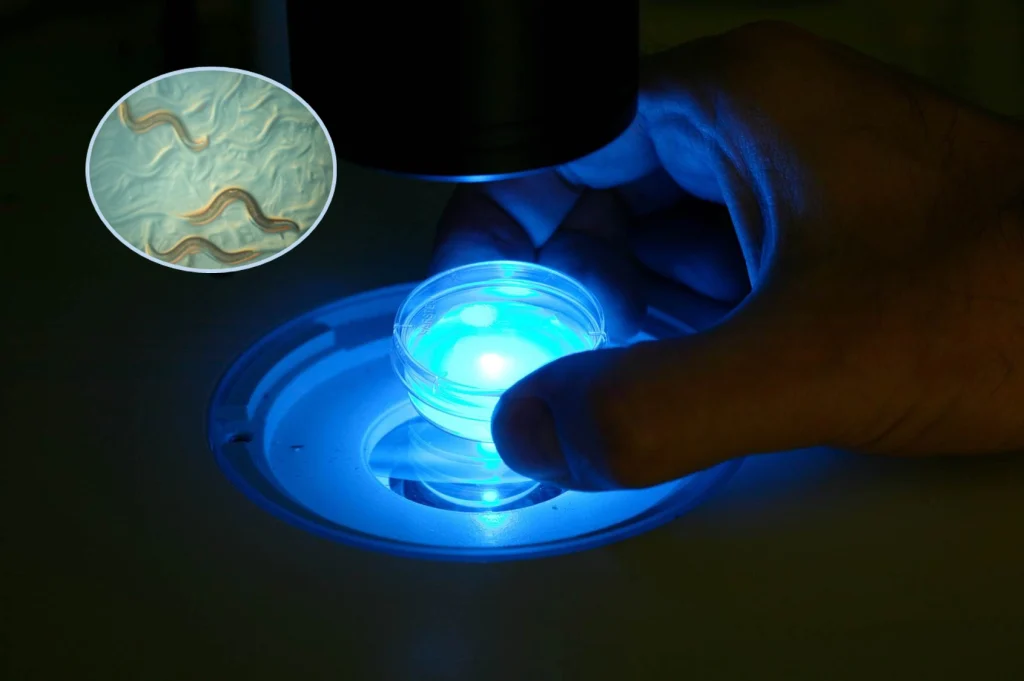
Researchers at Freiburg University discover new function of the widely disseminated, yet little understood ENDOU enzyme The nematode C. elegans, which is only 1 millimeter in size, is remarkably similar to humans from a genetic standpoint. Scientists can use the worm to study human diseases, life expectancy and even addictive behavior. Photo: Ralf Baumeister The […]
Anti-cancer drug’s mode of operation deciphered
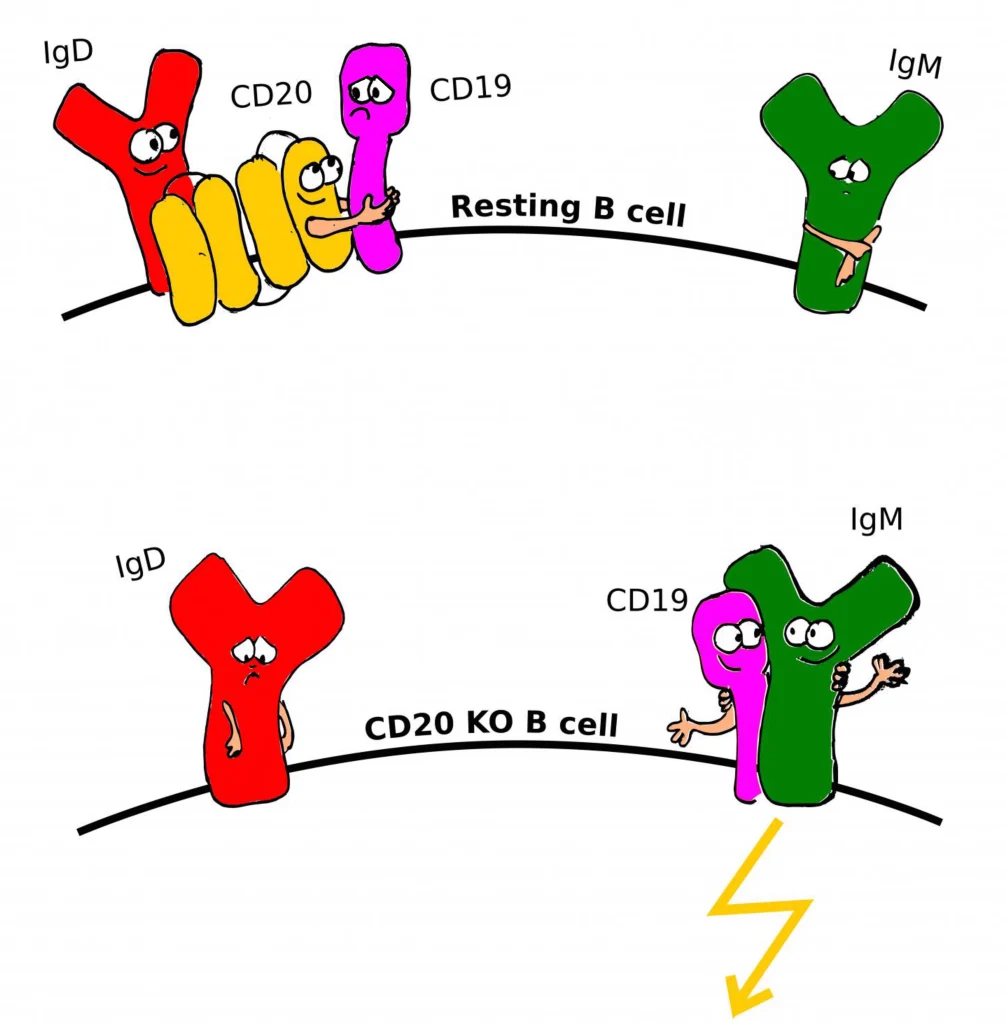
BIOSS researchers show how the membrane protein CD20 keeps the immune system’s antibody-producing cells in check Freiburg researchers investigate how the membrane protein CD20 organizes the nanostructures on the B cell membrane. Illustration: Julia Jellusova Rituximab, an anti-cancer drug targeting the membrane protein CD20, was the first approved therapeutic antibody against B tumor cells. Immunologists […]
Double award: German Society for Immunology (DGfI) honors scientists of BIOSS

Susana Minguet receives the Novartis Prize for therapy-relevant immunological research and Lukas Amann the Herbert Fischer Prize for Neuroimmunology Every year, the German Society for Immunology awards scientists who have made an outstanding contribution to the field of immunology. In 2021, PD Dr. Susana Minguet and Dr. Lukas Amann, researchers at BIOSS and the Cluster […]
Covid fiction by Michael Reth
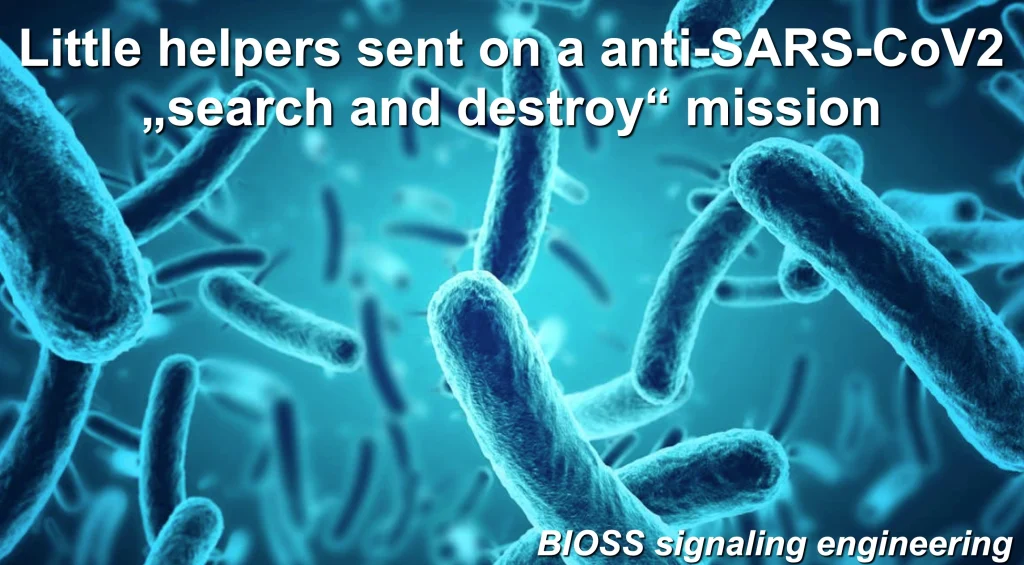
Detecting and counteracting the corona-2 virus with the help of little friends Freiburg researchers investigate how the membrane protein CD20 organizes the nanostructures on the B cell membrane. Illustration: Julia Jellusova The worldwide pandemic caused by the severe acute respiratory syndrome coronavirus 2 (SARS-CoV-2) is affecting one’s daily life in the entire world. Given the […]

